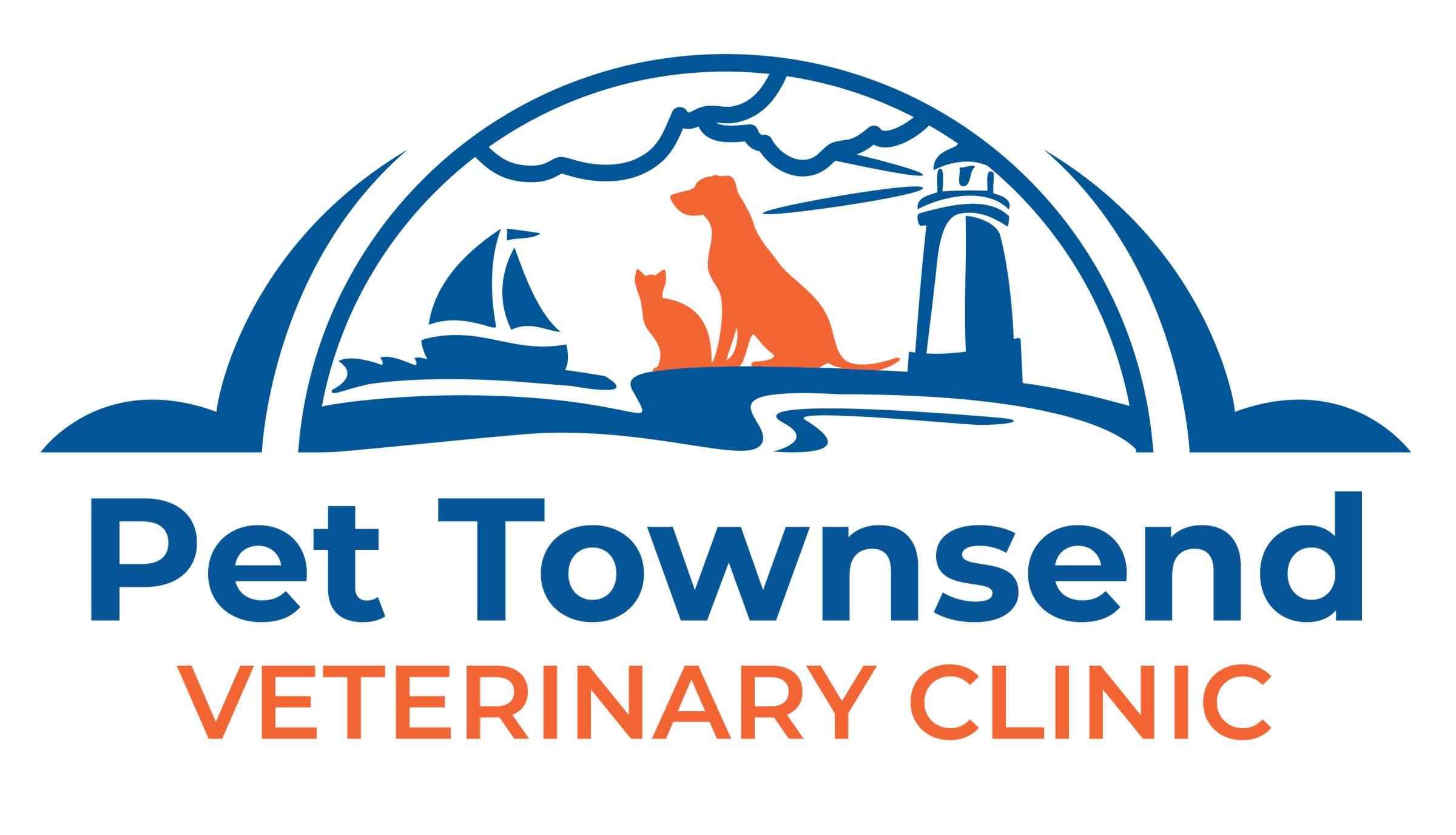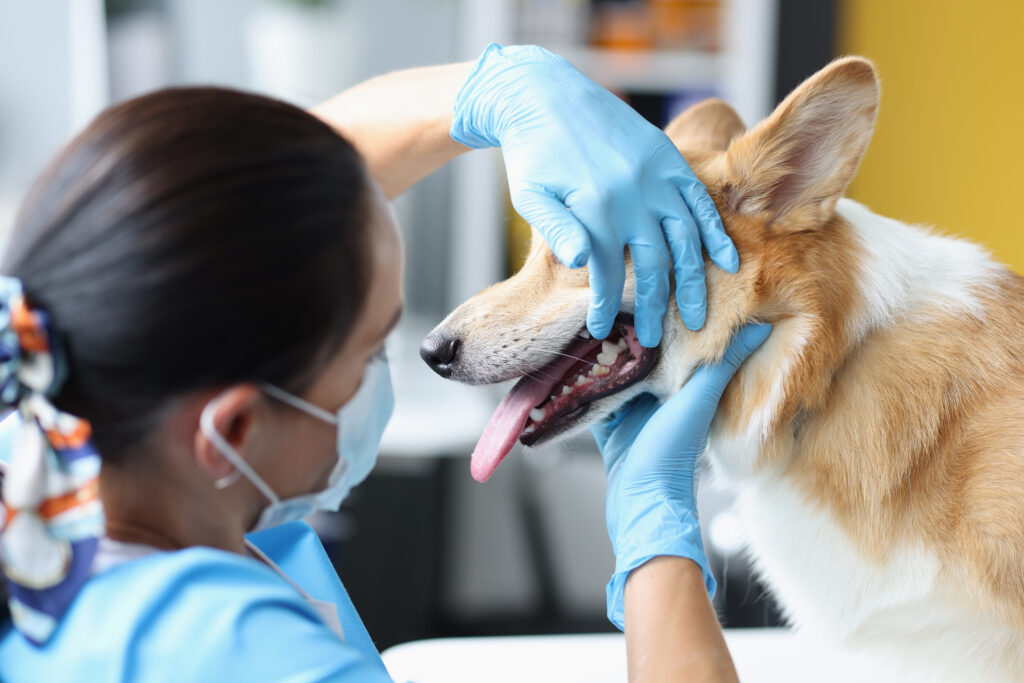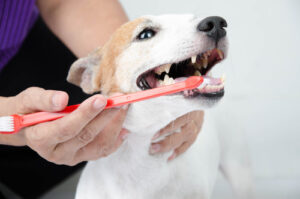Dental disease in dogs is a condition that is much more common than you may realize, and it can start when your pet is just 2 to 3 years of age if you haven’t established a dental care routine for them. We aim to provide valuable insights into the causes, symptoms, treatment, and prevention of dental disease in dogs. At Pet Townsend Veterinary Clinic, we are dedicated to offering personalized dental care to keep your dog’s mouth (and whole being) healthy. For more details on dental disease or to book an appointment, call us at (360) 379-1133.
The Causes of Dental Disease in Dogs
Dental disease in dogs begins with the formation of plaque, a bacteria-laden film, on the teeth. If not regularly removed, plaque can harden into tartar, a substance that’s much more challenging to eliminate. Several factors contribute to this process, including genetics, diet, and inadequate dental care routines. For example, some dog breeds are genetically predisposed to dental issues, and certain foods can increase plaque buildup. Moreover, regular brushing and professional pet dental cleanings are essential in preventing this accumulation. Ignoring these factors can lead to the development of dental disease, regardless of your dog’s breed or size.
Defining Dental Disease
Dental disease, or periodontal disease, is an infection resulting from the buildup of tartar on the teeth. This condition affects the structures supporting the teeth, including the gums and bones. As tartar accumulates, it causes the gums to become inflamed (a condition known as gingivitis), and, over time, leads to gum recession, tooth mobility, and severe oral discomfort. The gums may appear red and swollen, and bleeding can occur. In its advanced stages, dental disease can result in tooth loss, significant oral pain, and potential infection of the heart, kidneys, or liver. Overall, this condition can impact your dog’s ability to eat and enjoy life, and make them prone to ongoing systemic illness.
How to Spot Signs of Dental Disease Early
Dogs often hide their pain, making it difficult for their owners to see when there’s a problem. That’s why it’s important to know what signs to look for, so you can take steps to resolve the issue and improve your pet’s health.
The most common symptoms of dental disease in dogs include:
- Noticeably bad breath
- Swollen, bright red gums
- Bleeding of the gums
- Difficulty eating (chewing on one side, dropping food)
- Excessive drooling
- Pawing at the mouth
- Tartar buildup (you will need to lift up your dog’s top lip to check)
Diagnosing and Treating Dental Disease
At Pet Townsend Veterinary Clinic, our comprehensive approach to diagnosing dental disease includes performing a physical and oral examination, followed by dental X-rays under anesthesia to check for underlying problems like tooth decay and bone loss.
These steps help us identify hidden dental issues below the gum line. Treatment often involves removing tartar and calculus using special dental instruments. In cases where teeth are irreversibly damaged or loose, extractions may be necessary. We also administer antibiotics to treat any underlying infection and provide appropriate pain management, especially if extractions are performed. Our goal is to alleviate discomfort and restore your dog’s oral health as effectively as possible.
Preventing Dental Disease
Prevention is the most effective strategy against dental disease in dogs. This includes establishing a routine of daily tooth brushing to control plaque buildup. Introducing this practice early in your dog’s life can significantly reduce their risk of dental disease.
Additionally, feeding your dog a diet that helps control tartar, along with providing dental-friendly treats and chews, can further support their oral health. Regular dental checkups are also needed to enable early detection of potential dental issues. During these checkups, our team can offer personalized advice and demonstrate proper tooth-brushing techniques to help you get started. Consistent preventive care is essential in maintaining your dog’s oral health and preventing future illness.
Contact Pet Townsend Veterinary Clinic About Your Pet’s Dental Care
We offer comprehensive dental care services tailored to your dog’s unique needs, including detailed dental examinations and professional teeth cleanings. To keep your dog’s dental health on track, contact Pet Townsend Veterinary Clinic at (360) 379-1133 to schedule an oral exam and teeth cleaning. With early detection and proactive dental treatment, your dog can go the rest of their life without experiencing dental disease.





